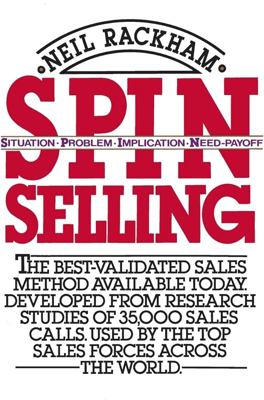Customer Needs in the Major Sale
Investigating Customer Needs in Major Sales
Neil Rackham emphasizes the critical role of the Investigating stage in sales success, identifying it as the strongest influencer of overall success in sales interactions. He explains that salespeople who are adept in this stage are more likely to perform better, while those weak in this area often falter in later stages. Notably, better Investigating skills lead to more effective closing, even though explicit training on closing techniques might be minimal.
Differences in Needs Development Between Small and Large Sales
Rackham offers distinctions between small and large sales: - In small sales, needs develop quickly and are often impulsive and emotionally driven. - Major sales see a slower, more rational development of needs, often requiring consultation with multiple stakeholders and posing significant risks, including potential job loss for the buyer if decisions prove faulty.
The Process of Needs Development
He describes the development of needs starting from minor imperfections in satisfaction that evolve into clear problems and eventually become defined wants or desires that trigger purchasing actions. This progression is typically swift in small sales but can be lengthy in major sales.
Implied and Explicit Needs
Rackham introduces the concepts of Implied and Explicit Needs: - Implied Needs are customer statements about problems or dissatisfaction (e.g., "Our system can’t handle the throughput"). - Explicit Needs are specific statements of desires or wants (e.g., "We need a faster system").
He highlights that in small sales, uncovering and addressing many Implied Needs can lead to success. However, in larger sales, simply identifying Implied Needs is not enough; these needs must be developed into Explicit Needs through skilled questioning. This need development is crucial because the complexity and cost of solutions in major sales demand a stronger justification for purchase.
The Role of Explicit Needs in Larger Sales
Rackham's research shows that while Implied Needs may signal purchasing intent in smaller sales, Explicit Needs are more predictive of success in larger sales. Effective sales strategies in major sales involve not just identifying but expanding Implied Needs into Explicit Needs through strategic questioning. This transition is vital because larger sales often involve higher stakes and costs, necessitating a more substantial justification for the investment.
Buying Signals and Strategic Questioning
In major sales, Explicit Needs are the real buying signals, indicating a readiness to purchase. Experienced salespeople focus on developing Implied Needs into Explicit Needs and recognize these explicit statements as indications of a successful sale. The strategic use of questions to facilitate this development underscores the importance of skilled probing in achieving sales success in complex scenarios.
In sum, Rackham posits that the quality of needs development through strategic questioning—not just the quick identification of needs—is what separates top performers from less successful salespeople in the context of major sales.
